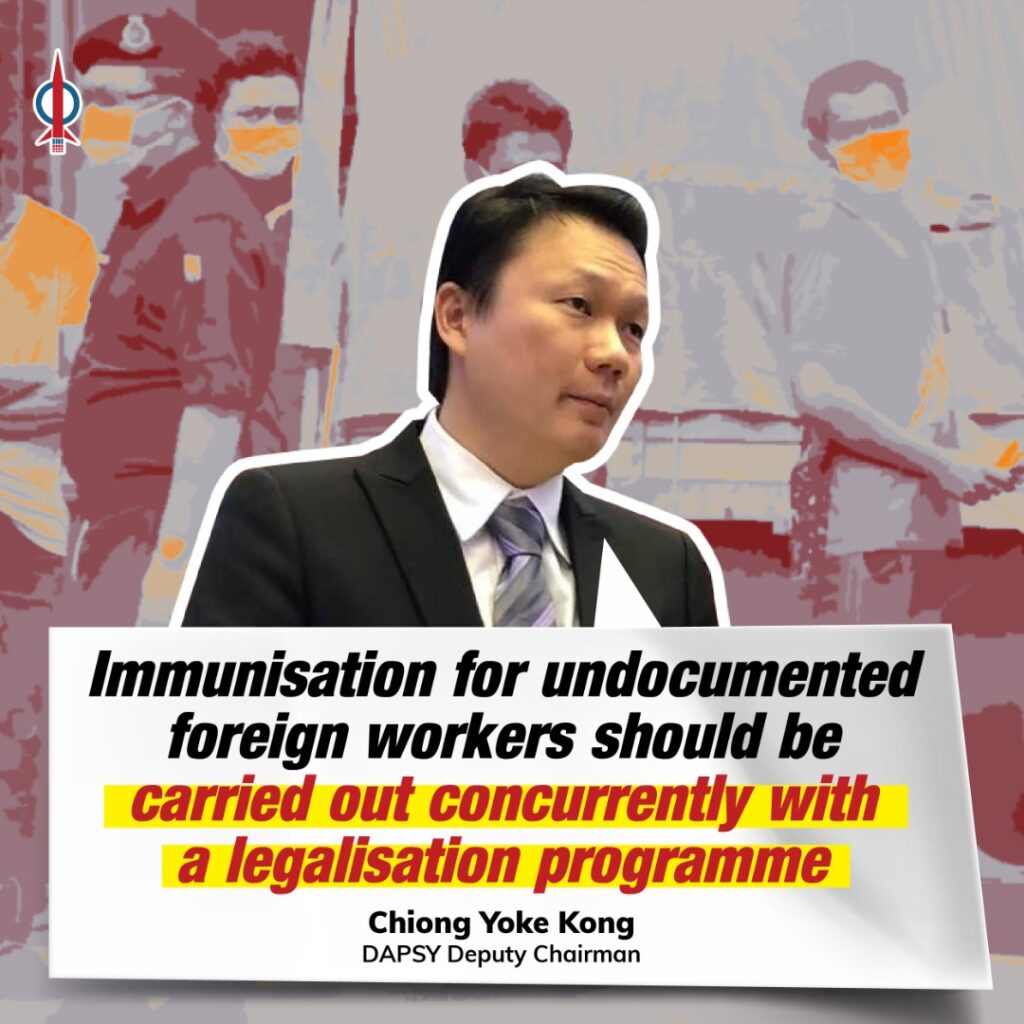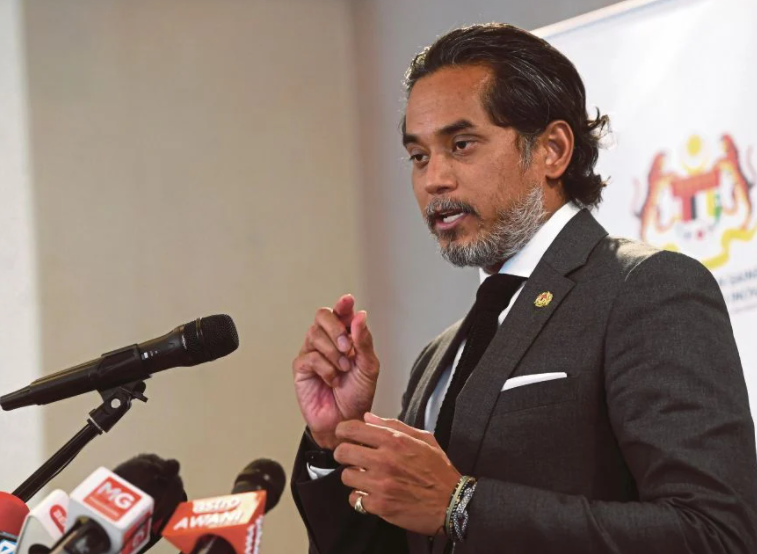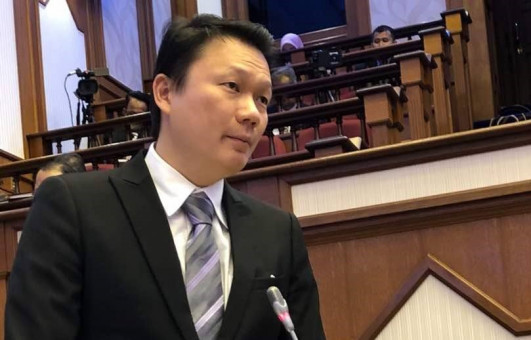
Science, Technology and Innovation Minister Khairy Jamaluddin has publicly promised that the government will not arrest undocumented foreign workers who come forward to receive the Covid-19 vaccine in order to achieve the goal of herd immunity.

DAPSY welcomes the government’s decision but recommends that it should roll out the vaccination programme concurrently with a campaign to legalise foreign workers to solve the pandemic and public health problems in our country once and for all.
It is important to note that Khairy’s verbal assurance may not be able to convince all undocumented foreign workers and their employers from participating in the vaccination programmme.
That is because the power to take action against undocumented foreign workers is limited to the Department of Immigration and PDRM under the Ministry of Home Affairs. As such, some employers and migrant workers might be worried that the government might talk the talk but not walk the walk due to uncoordinated government responses.

Moreover, if the government does not establish a complete database for undocumented foreign workers who come forward for vaccination, it will inevitably face various difficulties and challenges in tracking the spread of the virus and vaccine effectiveness in the future.
Therefore, DAPSY suggests that the government should grab the opportunity of vaccination to simplify the registration procedures of legalising all undocumented foreign workers in the country in order to solve the crux of the problem related to undocumented foreign workers.

According to official statistics, there are currently 2.3 million legal foreign workers in Malaysia, but it is estimated that there are more than 3.5 million foreign workers who do not have legal documents. They are scattered across the country in different sectors, primarily manufacturing, construction, plantation, and agriculture. Statistics show that about 60% of the new cases are linked to workplace, in which most of the infection sources are foreign workers.
Foreign workers working in the manufacturing and construction industries have been identified by the government as high-risk groups that spread the Covid-19 virus. Some of the main reasons include the generally poor living conditions of many foreign workers as well as limited access to medical services. Therefore, vaccinating all foreign workers, regardless of whether they are documented, is the key to ensure that the goal of herd immunity can be achieved.
The issue of undocumented foreign workers in Malaysia has always been a thorny social problem, which has been bringing about negative repercussions to our security, education, and public health.
Chiong Yoke Kong
In the past, the government implemented various legalisation or re-employment schemes many times with the hope of solving the problem. However, due to various obstacles such as red tape and high costs, such legalisation or re-employment schemes did not bring about intended positive outcomes.
On the contrary, the more foreign workers were legalised, the more of them were brought into the country. In the end, such schemes only benefitted a small bunch of well-connected private companies and corrupt government officials who seized profit unscrupulously.
Therefore, the government should grab the opportunity created by the vaccination programme to launch a legalisation scheme that aims at simplifying various procedures for reregistration and establishing a database for undocumented foreign workers. This will fundamentally solve the problems related to foreign workers in various aspects, including our public health system that is increasingly being strained by the pandemic.
Chiong Yoke Kong,
DAPSY Deputy Chairman



